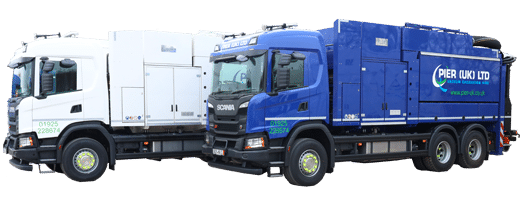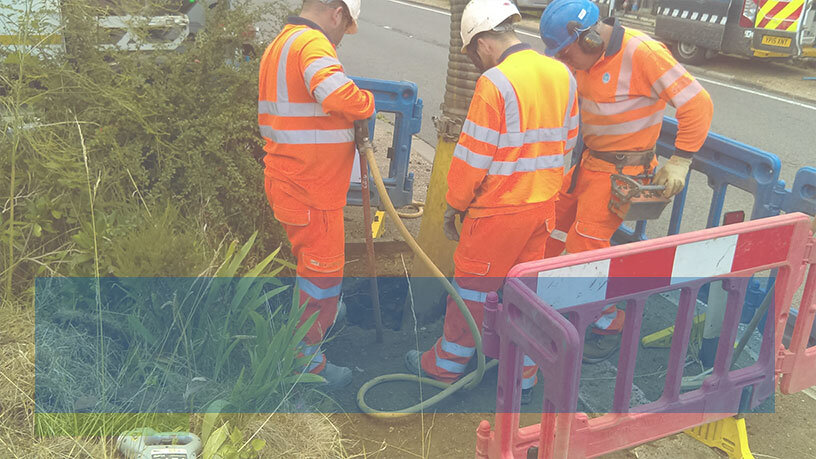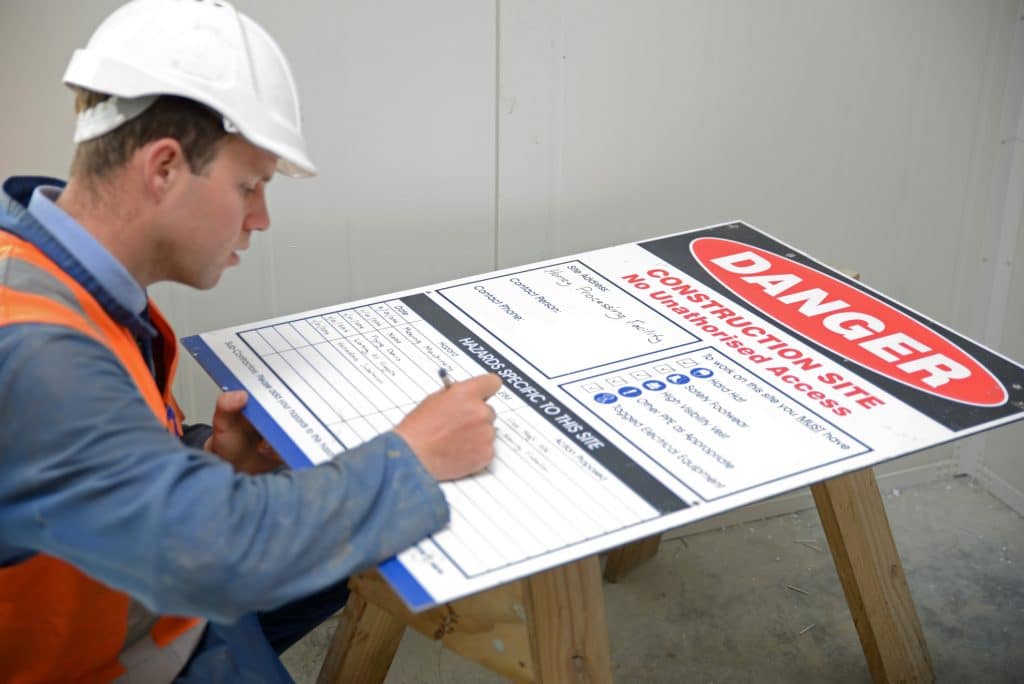Ensuring excavation safety is an essential part of modern contractor work, the law states that no excavation work should be carried out until the area is completely safe. Failing to secure an excavation site correctly can have disastrous consequences for workers and management, resulting in delays, injury, and even death.
One of the main causes of accidents on-site is poor preparation. Injuries from trench collapse or serious utility strikes could be avoided with correct planning and through the use of modern ground survey techniques such as Ground Penetration Radar.
According to the HSE Guidelines on preventing accidents in excavation, there are 6 essential steps that must be taken by the manager and on-site workers before and during the work.
The steps a manager must take:
- Ensure that the excavations are made safe by using trench supports or other effective measures.
- Be aware that there is no safe minimum depth of excavation.
- Providing training for your team which highlights all risk (big and small).
- Ensure that adequate inspections are carried out on all excavations on a weekly basis, especially after any bad weather.
- Provide competent supervision and protective clothing.
- Ensure that the plant doesn’t work too close to the edge of an excavation.
The steps the on-site workers must take:
- Never go into an unsupported trench where there is a risk of a collapse.
- Never work outside the protection of trench boxes or trench supports.
- Keep the plant at a safe distance from the excavation edge.
- Never work underneath an excavator.
- Be alert to the risks from underground services or undermining adjacent structures.
- Maintain fencing and other safety measures in order to protect others.
An increasing number of contractors are opting for more modern methods as a way of ensuring excavation safety on-site. Excavation techniques such as Vacuum Excavation is considered to be the more safe and reliable way to excavate.
Vacuum Excavators are able to excavate up to 4m3 per hour without requiring any manual labour or the use of mechanical diggers. The large suction arm is remotely operated from a safe distance, ensuring that the area is clear until all pipework has been exposed and greatly reduces the risk of any personal injuries or service strikes.
Although Vacuum Excavation costs more than the traditional excavation methods, companies within the Construction, Utility, and Highway industries are being won over by the speed, efficiency, and array of safety benefits.
Suction Excavators may prove to be particularly useful following on from the announcement of a nationwide ‘lane rental’ scheme and are increasingly being utilised to speed up the work on construction sites in built-up areas.
Building sites used to be notoriously dangerous. However, modern safety guidelines have improved the health and safety of building sites, and using vacuum excavation only further increases the safety of working on site. However, they are still dangerous, and due care and attention must be paid at all times. Cable strikes are extremely hazardous and are a serious risk during traditional manual excavation. Cable strikes are not only dangerous, but can also prove to be expensive for the project. Companies have been fined after cable strikes, for nearly 1 million pounds, so the cost can be exceptionally high.
Potential Excavation Hazards and Risks
Cable strikes are one of the most dangerous excavation hazards to be aware of during manual excavation work. This risk can be increased when working off old or unclear utility plans. It is not uncommon to find utilities in different locations as shown on the map, and this can be extremely dangerous, even deadly. Aside from cable strikes, manual excavation results in dust and debris being thrown into the air, which can put your team at risk. Vacuum excavation sucks up the dust, giving a cleaner working site, which is healthier for everyone.
The Role of Health and Safety Measures in Trenching
HSE, Health and Safety Executive, requires that workplaces must be free of recognised hazards and follow established safe excavation practices. Building sites are naturally hazardous places, so the role played by HSE on site is notable. Trenching or excavation is included in the remit of HSE, and they have regulations relating to excavation. Excavation can be a dangerous process, due to collapsing earthworks, however using vacuum excavation is safer than traditional excavation.
HSE Excavation Safety Standards and Regulations
The HSE website has very clear guidelines around safely trenching and excavating on-site. Remember that as an employer, you are responsible for the safety of your employees, and you must follow the standards and regulations to ensure site safety practices are followed at all times. Using vacuum excavation will help to carry out your excavation in line with the latest regulations and standards.
Penalties for Non-Compliance
If you fail to follow the government regulations and an employee dies as a result, the consequences could be devastating. People have been jailed for negligence resulting in fatal workplace accidents. Repeated non-compliance on site can result in harsh fines and the removal of licences. Safety is taken seriously on site, and businesses that breach health and safety regulations will be caught and brought to justice. Using vacuum excavation will help to keep your employees safe, and your business legal and compliant.
Choose Safe Excavation from the Team at PIER UK
When you come to the team at PIER UK for your excavation needs, you can be confident that we will provide a safe and fully compliant vacuum excavation service for your site. We work with you to ensure that your excavation work is carried out safely, reducing risk to your employees. Not only is vacuum excavation safer during the excavation, but it is also cleaner, as the vacuum excavation sucks the dust into the excavator, helping to keep the air cleaner and healthier on your site. Work with the team at PIER UK for a safe and clean excavation, simply call us today on 01925 228674
“We are pleased to see more people adopting the use of Vacuum Excavators. Excavation safety has always been of the upmost importance to us here at PIER (UK) are we are pleased to see the rest of the industry adopting similar practices. We are proud to have the UK’s largest fleet of Vacuum Excavators, and we can provide a solution for almost any terrain, whether it is on a highway, city centres or even oof-road.”
— Sean Quinn, Managing Director of PIER (UK).



